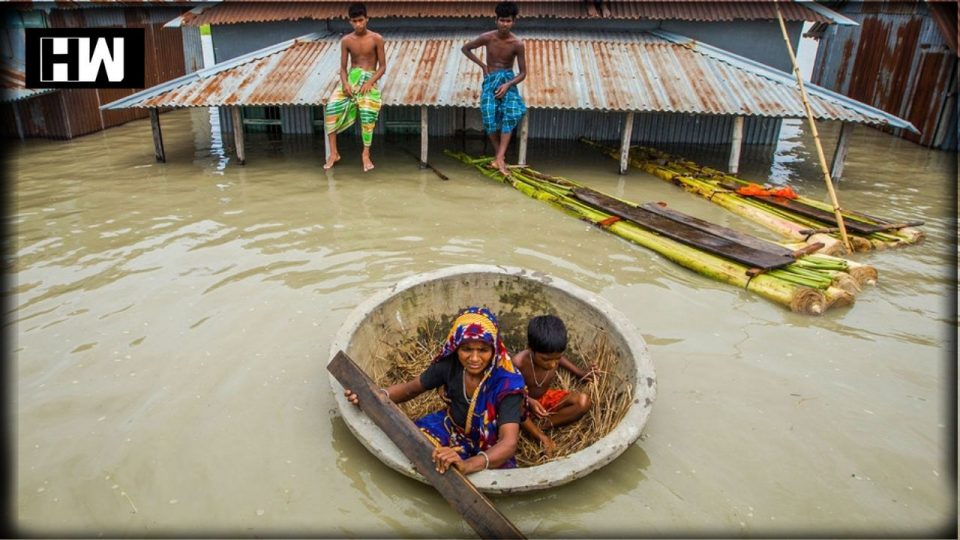Bridging the financial and technical gaps that will limit global warming, is the focus of a high-level debate in the UN General Assembly in New York on Tuesday.
The day-long meeting comes just ahead of the COP26 climate change conference for countries to deliver on the promise of keeping global temperature rise to 1.5 degrees Celsius, in line with the 2015 Paris Agreement.
In his opening remarks, Assembly President Abdulla Shahid highlighted the “blunt realities” of climate impacts such as rising sea levels, which are threatening island nations like his homeland, the Maldives.
Act as one
However, as the architect of a “Presidency of Hope”, Mr. Shahid stressed that countries can confront these challenges if they work together.
“Today’s event will not solve climate change, only action will,” he said, speaking from the rostrum. “Today’s event is about reminding people of what we are capable of if we act in concert, trust in science, and intelligently mobilize the many resources we have at our disposal.”
Scientists are unequivocal about the causes of the climate emergency. Human activities have warmed the atmosphere, ocean and land, driving ice melt and leading to unprecedented and rapid changes, said Valérie Masson-Delmotte from the Intergovernmental Panel on Climate Change (IPCC), the UN body that has published a series of ground-breaking but alarming reports on the issue.
“Human-caused climate change is already affecting every region on Earth in many ways, strengthening the frequency and intensity of extreme events such as heatwaves, heavy precipitation events, droughts and fire weather,” she said, speaking via videolink. “The changes we already experience will increase with further warming.”
COP26 Moment of truth
The UN and its General Assembly, where all 193 Member States are represented, were created so that countries could unite to address common crises such as climate change, Secretary-General António Guterres told the meeting.
COP26 in Glasgow will be a moment of truth, he added, because despite the alarm bells, governments’ actions so far “simply do not add up to what is so desperately needed.”
The world currently remains on a track for global temperature rise of 2.7 degrees Celsius, far from the 1.5 degree goal, or what Mr. Guterres called “the only liveable future for humanity.”
No more ‘diplomatic niceties’
He said the situation can only be reversed through reducing greenhouse gas emissions by 45 per cent this decade, when compared to 2010 levels, and net-zero emissions by mid-century. Leaders must also come to COP26 with bold targets and new concrete policies.
“The time has passed for diplomatic niceties,” the UN chief said. “If governments – especially G20 governments – do not stand up and lead this effort, we are headed for terrible human suffering.”
And while people expect their governments to lead, Mr. Guterres stressed that everyone has a role in achieving a future where fossil fuels, which create greenhouse gases, are abandoned for cleaner energy sources. This includes businesses, investors and average citizens.
Action and solidarity
“Individuals in every society need to make better, more responsible choices – in what they eat, how they travel, and what they purchase as consumers,” said Mr. Guterres. “And young people – and climate activists – need to keep doing what they’re doing: demanding action from their leaders.”
The Secretary-General also underlined the need for solidarity, urging richer countries to meet their commitment of at least $100 billion in annual climate finance for developing nations.
He also called for donors and development banks to devote at least 50 per cent of their climate support towards adaptation and resilience in the developing world.
Leaving no one behind
Climate action and sustainable development must go hand-in-hand, said the President of the UN Economic and Social Council (ECOSOC), Collen Kelapile. He underlined that everyone must be part of the net-zero future.
“The global transformation to address climate change must be just, inclusive, and equitable to ensure that no one is left behind, especially women, children, youth, indigenous peoples and displaced populations,” he said.
Mr. Kelapile added that countries must also invest in reskilling affected workers, and in economic diversification of communities. Like the Secretary-General, he also called for greater support for developing countries as they pursue a greener path.
More than 70 speakers are expected to participate in the debate, which will conclude on Tuesday evening.
As an independent media platform, we do not take advertisements from governments and corporate houses. It is you, our readers, who have supported us on our journey to do honest and unbiased journalism. Please contribute, so that we can continue to do the same in future.

